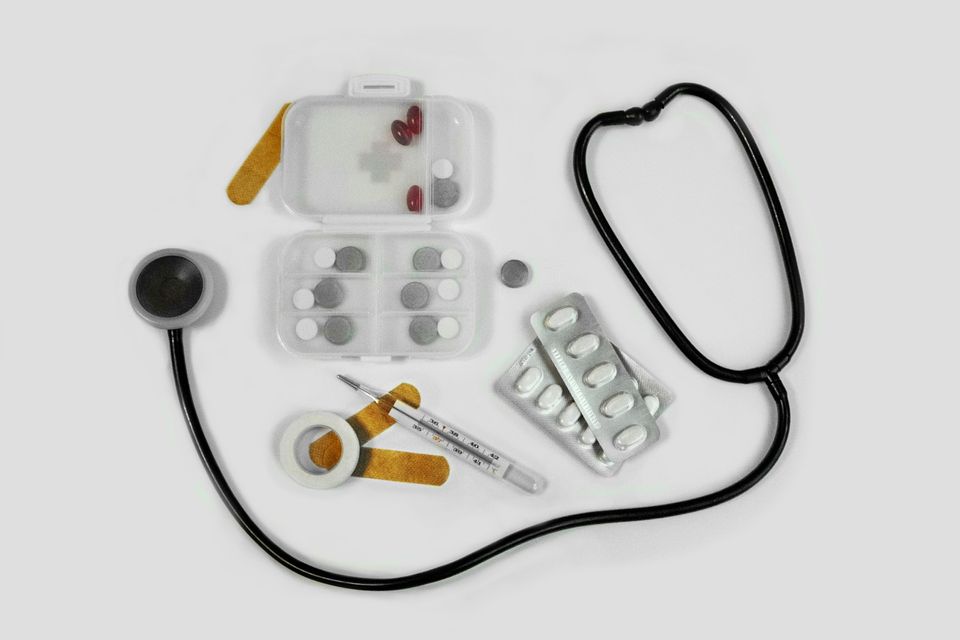The health industry is failing us. What can we do about it?

Ever since I decided to pursue a career in nutrition, I've been bothered by the disconnect between focus of the health industry and the needs of average people. As I get farther in my formal education, I'm quickly losing faith in the capability of nutrition professionals to reach the people who need them, when they need them, in the way that they need them.
One group of experts help the people who are very ill (e.g. hospital patients). A smaller group of experts help the people who are very fit (e.g. professional athletes). But what about the vast majority of the population who lie somewhere in between? It seems like there are few qualified experts left over to help them.
The travesty of our healthcare system as a whole is that people often don't get access to quality care until they reach the stage where critical intervention is needed. The saying "An ounce of prevention is worth a pound of cure" holds profound truth, yet our medical system is engineered for late-stage treatment over early-stage prevention. This not only comes at a great cost in terms of finances and health, but it comes at the cost of individual autonomy. Lots of capable and intelligent people are developing chronic diseases, and relying on doctors to drag them out of their graves, rather than having the means to steer themselves in the right direction from the start.

Somewhere along the way, we became a society that spends more on developing advanced pharmaceuticals than on empowering individuals to make healthier choices within their daily lives. We all know that the most potent elixir for health is a cocktail comprised of balanced diet, regular physical activity, and strong social relationships. And we all know what's best for ourselves, better than anyone else.
But no matter how knowledgeable and committed you are, you shouldn't have to manage eating right, staying active, and connecting with others all on your own. You have a job, a family, and a life outside of nutrition and fitness that demand your energy and time. You deserve support in keeping your body healthy, so that you are capable of working on everything else that is important to you.

Now let me tell you a little about the field of nutrition, from what I've seen as a nutrition graduate student. In America, the highest qualification for nutrition counseling is the nationally accredited Registered Dietitian (RD) credential. The requirements to become an RD include a graduate degree, a 9 month internship, and a passing score on a rigorous exam.
But if you happen to be a regular middle class adult with no serious health conditions, it's unlikely that you've ever met a Registered Dietitian in the flesh. That's because the majority of them work with sick patients in hospitals and nursing homes, as you can see from the data below. Even among those who work in private practice, the setting that is most likely to reach "average" people, the majority only take on clients with pre-existing health conditions that can be covered by insurance.

Anecdotally, I have noticed that nearly all of my fellow nutrition students fall within one of three categories:
- Those who want to treat sick people in a clinical setting
- Those who want to help professional athletes enhance their performance
- Those who want to stay in academia and do nutrition research
While all of this is important and respectable work, I'm still left wondering where this leaves the rest of the population. I mean, there are just so many levels between being at the pinnacle of health and having to be hospitalized that just aren't covered here.
The problem that many people face is that, without a pre-existing health condition, the cost of professional nutrition advice is prohibitive. You could already be struggling and know that your health is headed downhill, but if you don't already have a diagnosis of diabetes or fatty liver or high triglycerides (etc etc), a single RD consultation would cost you several hundred dollars out of pocket. If you don't have the means to pay up, you're left to grapple with questionable and even harmful advice from internet influencers that largely not backed by science.
You will be able to find the services of "health coaches", "nutrition coaches", and "nutritionists" at a lower price point. But you should know that these titles are all unregulated, and there is wild variation in the quality and types of service out there.
I have been coaching clients at Gray Matter Health for over 2 years while pursuing the RD path. I recently decided to join a "master health coaching" course to up-level my skills and become a National Board Certified Health and Wellness Coach (NBHWC). And let me tell you, I have been shocked and dismayed at some of the other coaches I've met in that class. On one hand, there are those who regularly prescribe water fasts and extreme elimination diets to help healthy middle aged women lose weight. And on the other, there are those who are in poor health themselves who have never successfully improved their own lives, much less anyone else's. Just know that they are among the "master/certified health coaches" you will find on the market.
Even extremely intelligent and responsible people can fall for dangerous diet fads that masquerade as medically-informed protocols. One of my clients, a successful lawyer in New York City, was following "The Copenhagen Diet" before she started working with me. This diet, consisting mainly of black coffee, boiled eggs, and lean meat, amounted to a mere 600 calories a day—which was woefully inadequate for any adult, let alone one with her demanding lifestyle. Sadly, it is difficult to discern which sources of information are trustworthy and reliable.

Another part of this problem is the way that health professionals are trained. While nutrition education thoroughly covers the science of health and disease, it completely disregards the value of communication skills and empathy. Therapists are required to complete countless hours of client communication practice and are assessed on their performance in these sessions. But there is no such requirement for dietitians and nutritionists.
Any health practitioner can tell you to eat more vegetables and fit in more daily movement. But that's not at all what helps people adopt healthy behaviors. People don't want to be lectured at. They want to have authentic and meaningful interactions with professionals who show deep care for their wellbeing and respect for their individual preferences. They want someone to work with them to identify realistic action steps that work within the reality of their daily lives.
We need to look beyond traditional models of healthcare. Our healthcare system isn't a solution; it's only a safety net. Instead of relying on the paternalistic medical-industrial complex, we should be empowering individuals and communities to manage their health on their own terms and provide support for one another.

You don't need to be an expert to take action and improve your health today. But if you don't have access to expert guidance, you need to be very honest and discerning when things don't feel right.
If you're currently in good health, you can afford to take some chances and learn from your experiences. Try out a new fitness program, change up your diet, experiment with a different morning routine. If you want a source of guidance and support, hire a health coach. And if you don't hit it off with them, fire them and hire a new one. Read different sources of information and ask different people about their experiences. You may not be able to fully trust the word of other people, but you can always trust your own experience and intuition.
If you keep trying, eventually you will land on what works best for you, and you will play an active role in preventing illness, injury, and disease. Moreover, your dedication to self-improvement will inspire your friends, family, and greater community to take action themselves.
Remember that your health is built up from your daily choices, and that the power to shape your future is already within you.